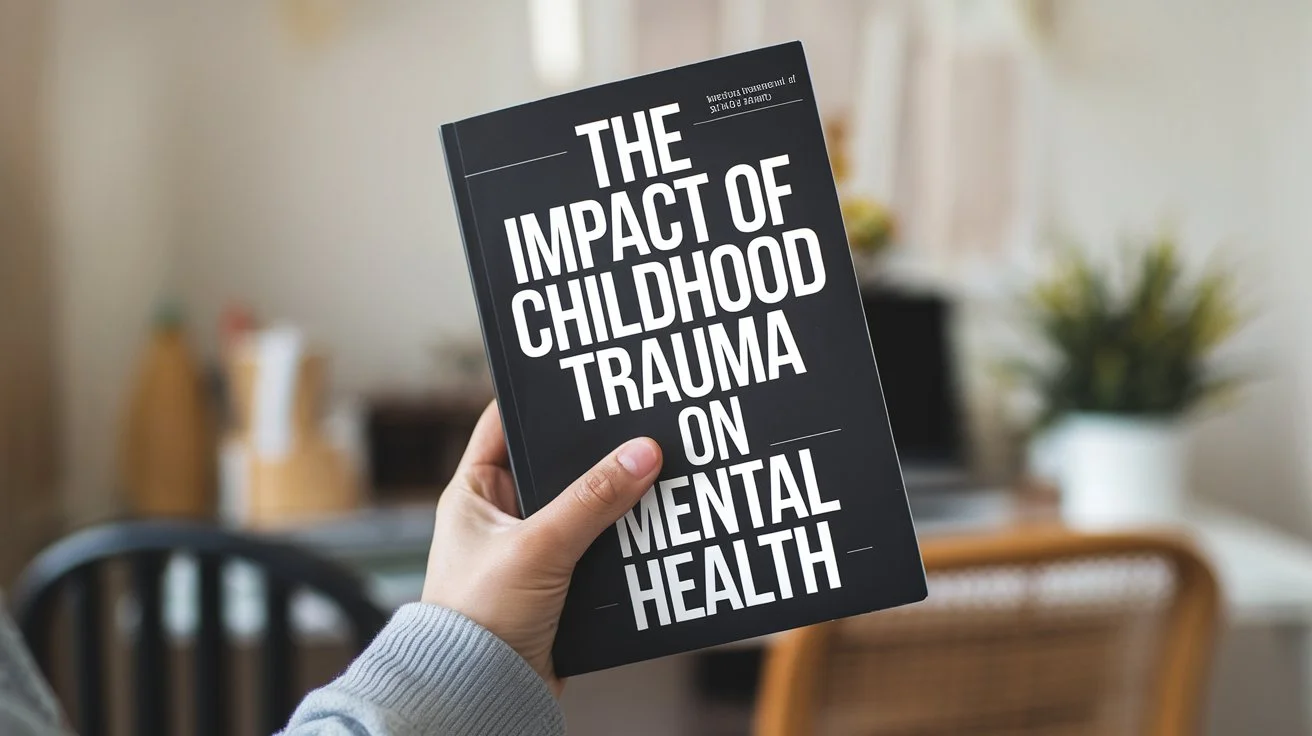
Childhood is supposed to be a time of growth, exploration, and happiness. However, for many individuals, it's marked by significant trauma that leaves long-lasting scars. Childhood trauma refers to deeply distressing experiences that disrupt the sense of safety and normalcy in a child’s life. These traumatic events can leave an imprint on mental health, with effects that often linger into adulthood. Understanding how childhood trauma impacts mental health is essential not just for those affected, but for society as a whole, as this awareness can help foster healing and prevention.
Childhood trauma encompasses a range of distressing experiences that occur during the formative years of life. It can involve physical abuse, emotional neglect, sexual abuse, or even environmental factors like witnessing violence or enduring a natural disaster. Traumatic experiences vary, but what makes them traumatic is the overwhelming sense of fear, helplessness, or loss of control they impose on the child.
For instance, a child growing up in a home where domestic violence is a daily occurrence will often internalize that environment of fear and unpredictability. Similarly, children who are emotionally neglected may experience a sense of worthlessness or invisibility, struggling to understand their own value.
Childhood trauma has profound effects on brain development, particularly because the brain is still growing and adapting during early years. Research shows that trauma can alter the architecture of the brain, affecting areas responsible for memory, emotional regulation, and decision-making.
When a child experiences trauma, stress hormones like cortisol flood their system. While these hormones are designed to protect in moments of danger, prolonged exposure can impair brain development. This is especially true for regions like the hippocampus (responsible for memory) and the amygdala (which processes fear). Over time, these changes can lead to heightened anxiety, difficulty concentrating, and emotional outbursts.
In the immediate aftermath of trauma, children may exhibit various emotional and behavioral responses. These might include:
The long-term effects of childhood trauma are far-reaching. Many adults who experienced trauma in their early years struggle with mental health conditions such as:
Research consistently highlights the link between childhood trauma and the development of mental health disorders in adulthood. Individuals who experience trauma as children are at a significantly higher risk of developing conditions such as:
The reason trauma predisposes people to these conditions often lies in the brain's altered development and the learned patterns of emotional response that arise from traumatic experiences.
One of the core effects of childhood trauma is emotional dysregulation. A child who has faced trauma often struggles to manage their emotions, swinging between extremes or reacting disproportionately to stressors. This emotional volatility stems from the brain’s altered response to stress and the child’s lack of learned coping mechanisms.
As adults, these individuals may find it difficult to form stable relationships, deal with daily stress, or even regulate their emotional responses during minor conflicts.
Trauma can severely disrupt cognitive development. Children who have endured trauma often perform worse academically, struggling with attention, memory, and decision-making. Cognitive distortions, such as believing they are to blame for what happened or seeing the world as inherently unsafe, often develop, influencing how these individuals navigate the world.
The social effects of childhood trauma are often as significant as the cognitive and emotional ones. Trauma survivors frequently report:
Many individuals who experience childhood trauma turn to substances as a way to cope with their unresolved emotions. Drugs and alcohol provide temporary relief from the overwhelming feelings of anxiety, fear, or sadness that accompany trauma, but often lead to addiction. This creates a vicious cycle, as the substance use further disrupts mental health.
The effects of trauma don’t just stop with one individual. Parents who experienced childhood trauma may struggle to parent effectively, inadvertently passing down patterns of anxiety, emotional instability, or avoidance to their children. This generational transmission of trauma means that the effects can be seen not just in the person who experienced the trauma, but in their children and even grandchildren.
Attachment theory provides valuable insight into the effects of childhood trauma. Children who experience trauma, especially neglect or abuse from a caregiver, often develop insecure attachment styles. These children may grow up to have avoidant or anxious attachments in their adult relationships, struggling with intimacy, trust, and emotional vulnerability.
Fortunately, many therapeutic approaches exist to help individuals heal from childhood trauma. Some of the most effective include:
While trauma can have devastating effects, certain protective factors can mitigate its impact. A strong support system, whether it's a nurturing caregiver, teacher, or counselor, plays a critical role in building resilience. Teaching children healthy coping mechanisms and providing a stable environment can help them recover from trauma and build a more positive outlook for the future.
Childhood trauma leaves a lasting imprint on mental health, affecting brain development, emotional regulation, and cognitive abilities. While its impact can be devastating, understanding these effects is the first step toward healing. Through effective therapy and support, individuals can overcome the shadows of their past and lead fulfilling, emotionally healthy lives. It’s crucial to address childhood trauma early on to prevent its damaging effects from persisting into adulthood.